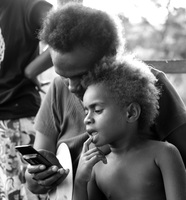 Electronic media have been with us for a couple of lifetimes now, and many of the lessons that once seemed revolutionary, even world-changing, have been reduced to mundane platitudes. Here in Vanuatu, however, we would do well to relearn them. A new report from the Pacific Institute of Public Policy gives us that opportunity.
Electronic media have been with us for a couple of lifetimes now, and many of the lessons that once seemed revolutionary, even world-changing, have been reduced to mundane platitudes. Here in Vanuatu, however, we would do well to relearn them. A new report from the Pacific Institute of Public Policy gives us that opportunity.
Marshall McLuhan’s rise to prominence as a cultural icon parallels that of television. Today, just like television, he is as widely lionised as he is misunderstood. Like credulous children, we toss around the terms he minted without a moment’s reflection. ‘The media’ has become a shibboleth for corporate commentary on the events of the day, filtered arbitrarily through a lens that sees no further than the next ratings cycle.
McLuhan saw this trend and feared it. Contrary to popular belief, his famous image of a global village was a pessimistic, almost despairing vision. A flickering television screen replaced the campfire at the centre of the human experience, but those huddled around it, seeking meaning in its seductive gaze, were as brutish and unreflective as he imagined early man to be.
It’s a shame he wasn’t around to see the how the rise of personal communications has subverted this dark vision. A new PiPP report, “Social and economic impact of introducing telecommunications throughout Vanuatu”, demonstrates unambiguously that access to personal communications has the power to change lives.
